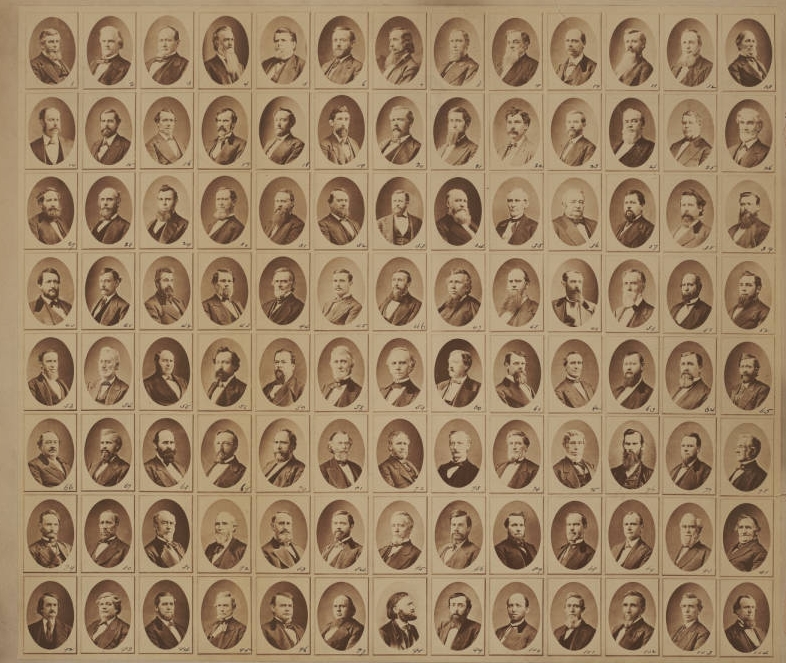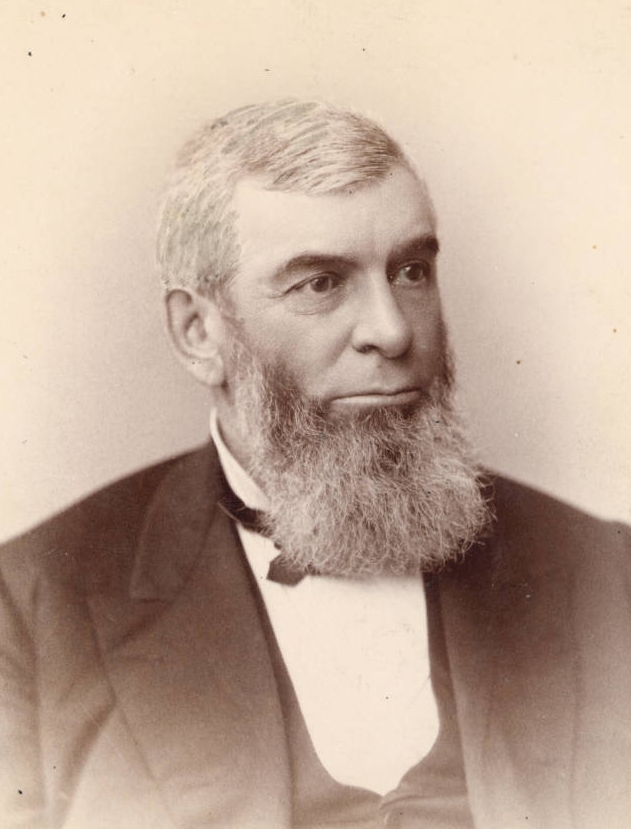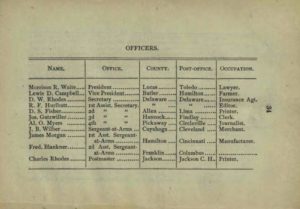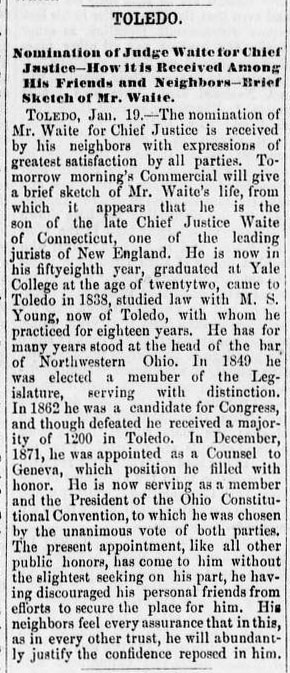The Law of the Land: Chief Justice Morrison Waite


Today we continue our profiles of U.S. Supreme Court justices from Ohio with Morrison Remick Waite, the seventh chief justice of the nation’s highest court. Waite was born in 1816 in Lyme, Connecticut, where his father was an attorney and later became chief justice of the Supreme Court of Connecticut. After graduating from Yale, Waite moved to Maumee, Ohio, where his uncle was a merchant, to study law; he was admitted to the bar in 1839.
After practicing law in Maumee for several years, Waite moved to Toledo, where he became a leader in state legal circles. He served in the Ohio Senate from 1849 to 1850; made two unsuccessful bids for the U.S. Congress in 1846 and 1862; and was offered (but declined) a seat on the Ohio Supreme Court in 1863. He first attracted national attention as one of three attorneys representing the United States in the 1871 Alabama Tribunal in Geneva, Switzerland. In this case, the U.S. sought compensation from Great Britain for damages inflicted during the Civil War by the British-built Confederate ship Alabama; Waite and his fellow attorneys won a $15 million award for the U.S.

After returning from Europe, Waite was elected a delegate to and then president of the 1873-74 Ohio Constitutional Convention. Waite was at the convention on January 19, 1874, when he was notified by telegram that President Ulysses S. Grant had nominated him for chief justice of the U.S. Supreme Court.
Chief Justice Salmon P. Chase, also an Ohioan, had passed away in May 1873. Grant waited six months before nominating anyone; when he finally took action, six people (including three senators, the secretary of state, and the current and former attorneys general) either declined the position before nomination or withdrew after nomination due to controversy. Those in political circles were not impressed with Waite’s nomination, noting that he had never argued a case before the Supreme Court. However, the general public seemed relieved to have a competent, uncontroversial choice.

Waite was often described by peers as friendly, cheerful, and a good listener. Although he was not a major intellectual force on the court, his personal and managerial skills made the court fairly harmonious and very productive. The court decided nearly 3,500 cases during Waite’s fourteen-year tenure. (In comparison, the modern Supreme Court typically decides fewer than 200 cases per term.) Waite wrote approximately one-third of those opinions himself, including some of the first opinions interpreting the Thirteenth, Fourteenth, and Fifteenth Amendments, which addressed abolition, civil rights, and voting rights. Although he personally opposed slavery and supported women’s rights (including the admission of women to the Supreme Court bar), Waite’s opinions on the balance between state and federal authority led to narrow interpretations of the Civil War Amendments, which significantly weakened civil rights.
Despite this, Waite had a strong sense of personal integrity. Near the end of Grant’s second term, some Republicans approached Waite about the presidential nomination. He declined, refusing to use the Supreme Court as a political stepping stone. He also refused to sit on the Electoral Commission that decided the outcome of the 1876 election by ruling on disputed Florida electoral votes because he was a friend of Republican candidate Rutherford B. Hayes and had been a college classmate of Democratic candidate Samuel J. Tilden.
Waite swore in four different U.S. presidents during his tenure before dying unexpectedly of pneumonia in 1888. After a service held in the House of Representatives Chamber, all but two of the associate justices accompanied his body on a special train to Toledo for his funeral and burial.
Thank you to Stephanie Michaels, Research and Catalog Services Librarian at theState Library of Ohio, for this week’s post! Check back in coming weeks to learn more about Ohio’s other chief justices.



Leave a Reply
You must be logged in to post a comment.